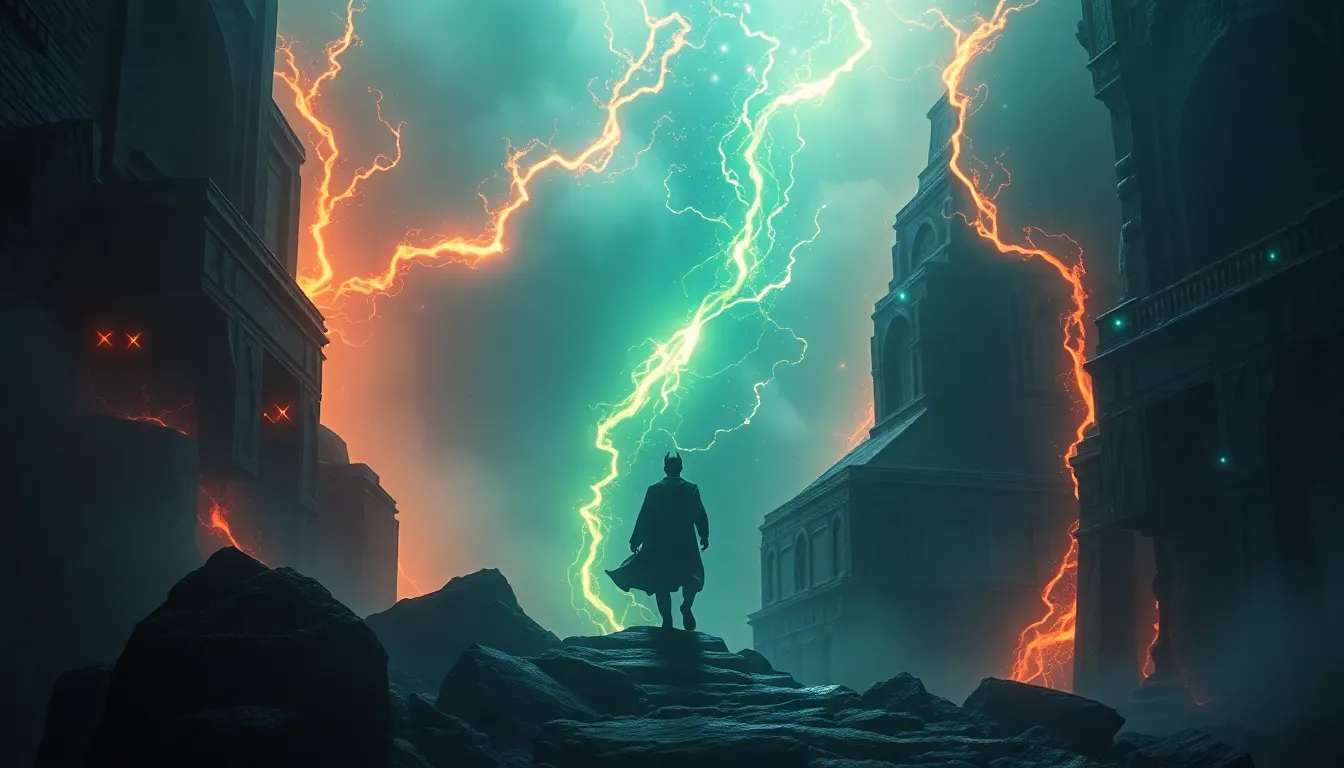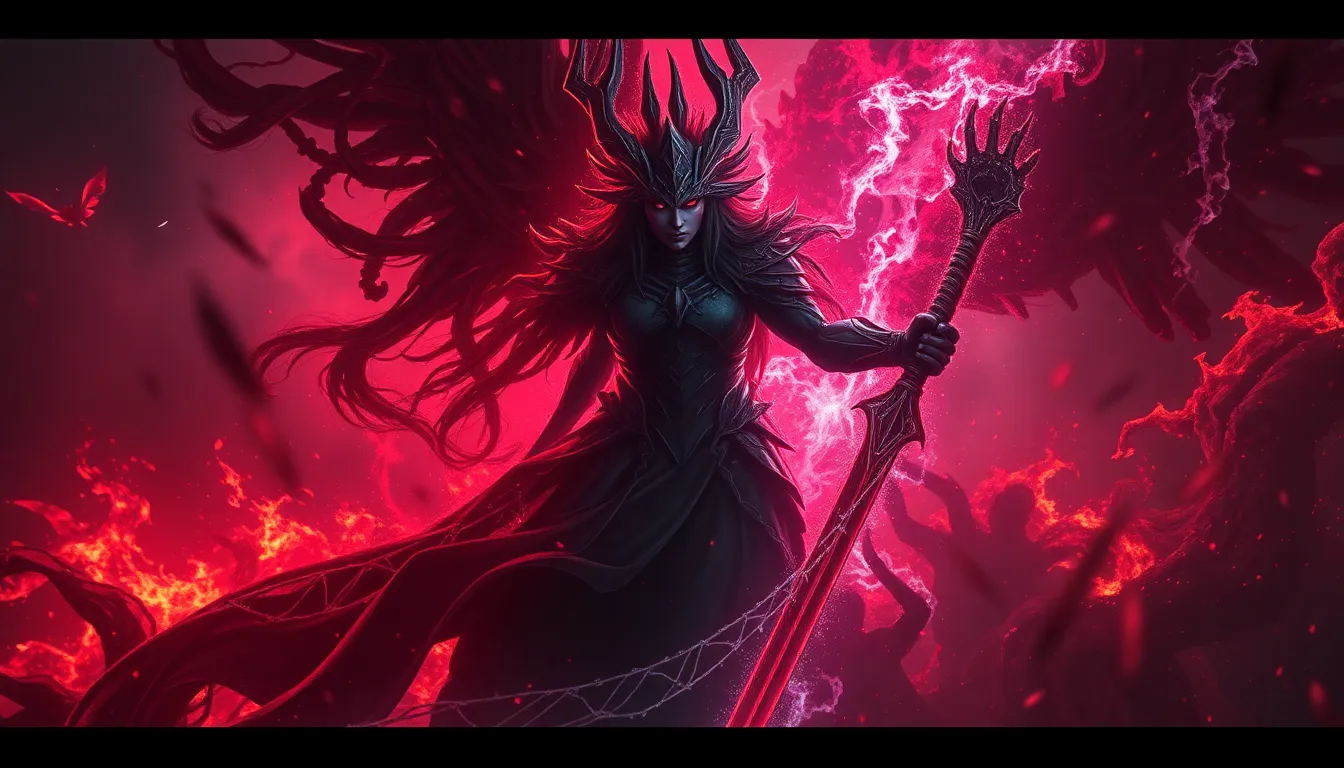From Fear to Freedom: Transformative Journeys in Legendary Tales
I. Introduction
Transformative journeys in literature are narratives that depict a character’s evolution from a state of limitation to one of empowerment. These journeys often illustrate the struggle between fear and freedom, presenting a profound exploration of human experience. Legendary tales, rich with cultural significance, frequently employ this journey to convey timeless lessons about overcoming adversity.
The significance of fear and freedom in these stories cannot be overstated. Fear can immobilize individuals, while the attainment of freedom symbolizes liberation and self-actualization. This article will navigate through the archetype of fear, the stages of transformation, the importance of mentorship, and the broader implications of freedom, ultimately drawing connections to modern interpretations and personal growth.
II. The Archetype of Fear in Legendary Tales
Fear is a universal theme in folklore and mythology, manifesting in various forms:
- Fear of the unknown
- Fear of failure
- Fear of loss or separation
- Fear of rejection
This archetype not only heightens the stakes for characters but also serves as a catalyst for their development. As characters confront their fears, they embark on a path of self-discovery and growth. Iconic figures such as Beowulf, who faces the terror of Grendel, and Odysseus, who confronts the wrath of Poseidon, exemplify how fear can drive heroic narratives.
III. The Journey of Transformation
Transformative journeys typically unfold in distinct stages:
- The Call to Adventure: The protagonist is prompted to leave their ordinary world, often facing an initial reluctance.
- The Trials and Tribulations: As the journey progresses, characters encounter challenges that test their resolve and character.
- The Revelation and Growth: Ultimately, characters experience a pivotal moment of insight that leads to personal transformation.
These stages are rich with symbolic meanings; the call often represents an invitation to embrace change, while trials signify the necessary struggles to achieve growth. Legendary tales such as “The Odyssey,” “The Epic of Gilgamesh,” and “The Hero with a Thousand Faces” by Joseph Campbell illustrate these stages effectively.
IV. Overcoming Obstacles: Trials that Forge Character
Obstacles are crucial in fostering personal growth. They challenge characters to dig deeper into their potential and discover inner strengths. Prominent heroes, like Hercules, who must complete the Twelve Labors, and Frodo Baggins, who must carry the burden of the One Ring, showcase how trials shape their identities and destinies.
Furthermore, a comparative study reveals how different cultures depict trials in their tales:
- In Japanese folklore, the tale of Momotaro emphasizes teamwork and perseverance.
- Native American legends often involve nature-related trials that teach respect for the earth.
- In Arthurian legends, the trials faced by knights often reflect moral and ethical dilemmas.
V. The Role of Mentors and Guides
Mentorship plays a pivotal role in transformative journeys, providing characters with guidance, wisdom, and support. Iconic mentor figures, such as Merlin in Arthurian legends and Yoda in “Star Wars,” exemplify how mentors can shape the hero’s path. These relationships often highlight essential lessons:
- The importance of knowledge and preparation.
- The value of perspective and insight.
- The necessity of emotional support during challenging times.
VI. The Power of Choice and Agency
The journey from fear to freedom is significantly impacted by the choices characters make. These choices often redefine their destinies, as seen in the tales of characters like Katniss Everdeen in “The Hunger Games,” who chooses to rebel against oppression, and Harry Potter, who decides to confront Voldemort despite the risks. The relationship between freedom and responsibility is crucial; with freedom comes the weight of choices that shape not only the individual but also the world around them.
VII. The Symbolism of Freedom in Legends
Freedom is portrayed in myriad ways across cultures. It often signifies not just a physical release from constraints but also a psychological emancipation. Achieving freedom can lead to significant consequences:
- Rediscovery of identity
- Societal change and transformation
- Personal fulfillment and peace
In legendary narratives, the connection between freedom and identity is profound. Characters who attain freedom often undergo a metamorphosis, embracing their true selves and finding their place in the world.
VIII. Modern Interpretations of Legendary Journeys
Contemporary literature and media frequently reinterpret these themes, reflecting the relevance of fear and freedom in today’s society. From novels like “The Alchemist” by Paulo Coelho to films such as “Moana,” modern tales continue to explore transformative journeys. These narratives resonate with audiences, highlighting that the struggle between fear and freedom is timeless.
IX. Lessons for Personal Growth and Transformation
Insights drawn from legendary tales offer valuable lessons for modern readers:
- Embrace fear as a catalyst for change.
- Understand that transformation often requires overcoming significant obstacles.
- Recognize the importance of mentorship in personal growth.
Practical steps for embracing fear and seeking freedom include setting personal goals, reflecting on choices, and seeking supportive relationships—each step facilitating the journey toward self-discovery and empowerment.
X. Conclusion
In summary, the exploration of transformative journeys in legendary tales reveals profound insights into the human experience of fear and freedom. The archetypes, trials, mentorship, and choices in these narratives resonate across cultures and eras, offering timeless lessons in resilience and growth. As we reflect on these legendary journeys, we are encouraged to embark on our own paths of transformation, drawing inspiration from the tales that have shaped humanity’s understanding of fear and freedom.



